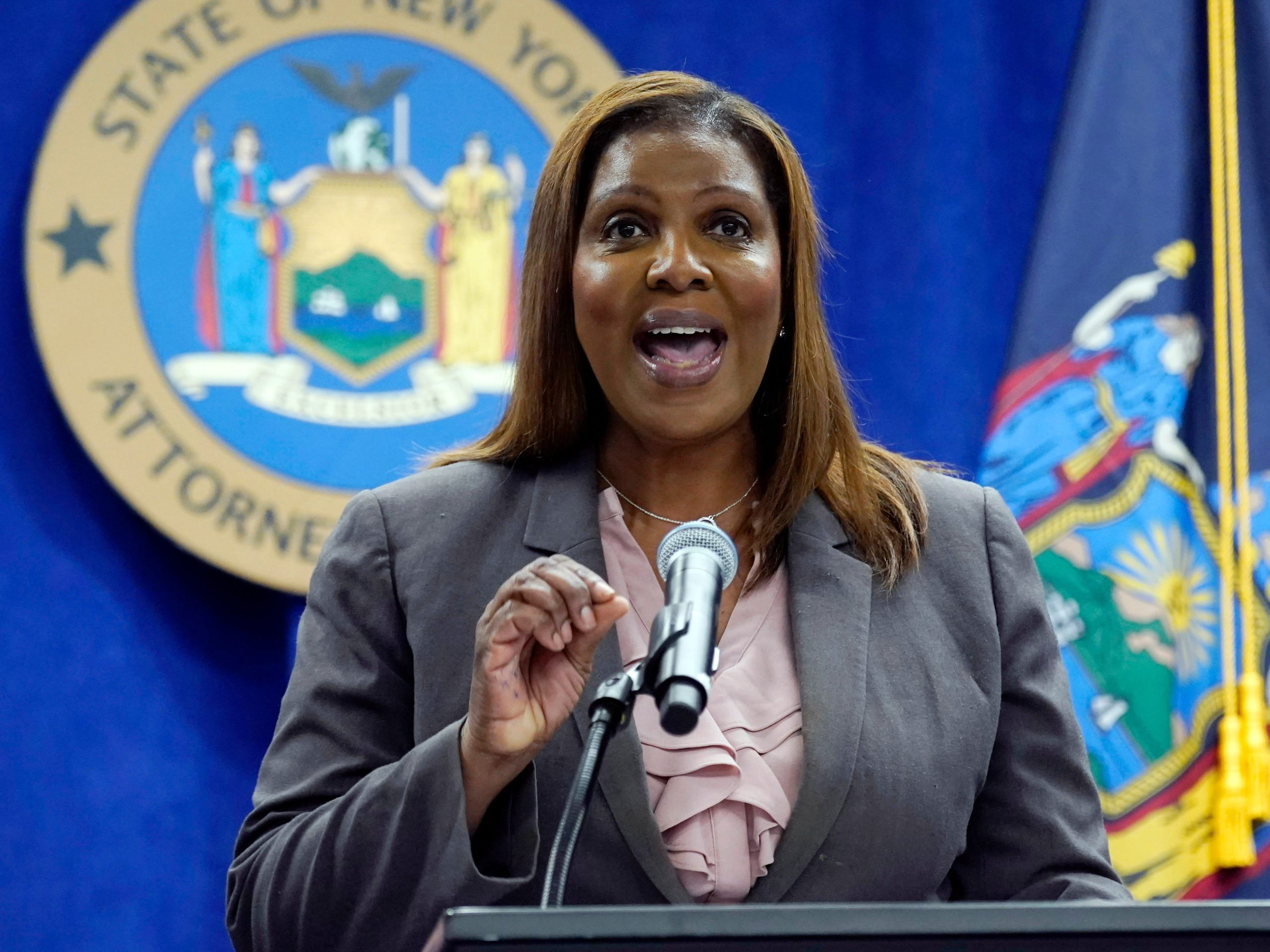New York Attorney General Letitia James has raised concerns about the validity of the bond posted by former President Donald Trump in connection with his civil fraud case. James argues that the bond, which is meant to cover a substantial financial penalty imposed on Trump and his entities, may not be backed by adequate collateral.
The bond was issued by California-based Knight Specialty Insurance Company (KSIC), which James’s office claims is not authorized to conduct business in New York and lacks sufficient assets to cover the bond amount.
The situation stems from a February ruling by Manhattan Judge Arthur Engoron, who imposed a $464 million penalty on Trump, The Trump Organization, and his adult sons after finding them guilty of financial fraud. An appeals court later reduced the required bond amount to $175 million.
Donald Trump (Credits: Brittanica)
However, the attorney general’s office contends that KSIC’s financial capabilities fall short of the demands of the bond. According to their filing, KSIC’s policyholder surplus only allows it to cover risks up to $13.8 million, far below the $175 million bond posted for Trump.
The filing by James’s office also points to a discrepancy in the bond’s coverage, noting that the face amount of the bond exceeds KSIC’s risk limitation by $161.2 million.
Despite KSIC’s assertion earlier in the week that the bond was sufficiently backed by cash in a Charles Schwab account and could access additional assets from its parent company totaling nearly $2.2 billion, the New York Attorney General remains skeptical.
Donald Trump (Credits: ABC News)
This legal challenge highlights the difficulties and ongoing disputes in the financial and legal wrangling surrounding Trump’s business practices.
With a pre-scheduled court hearing set for Monday, the judge may soon decide whether the bond posted by Trump is valid or if a replacement must be provided within a week. This decision could have serious implications for Trump, potentially impacting his financial obligations and legal strategy moving forward.
